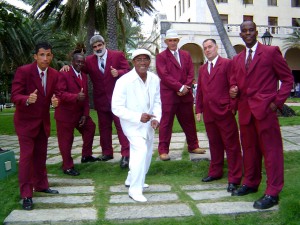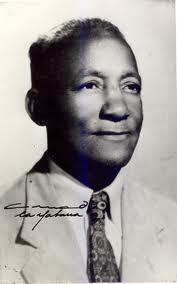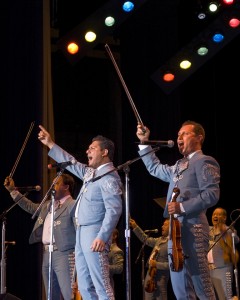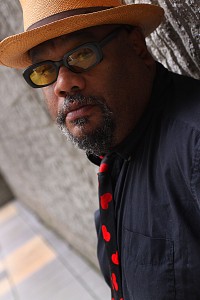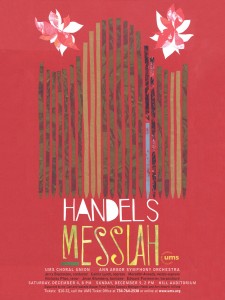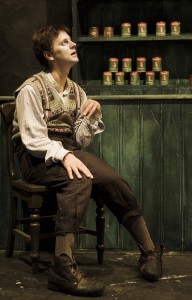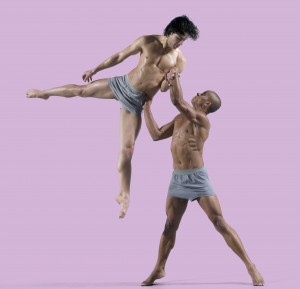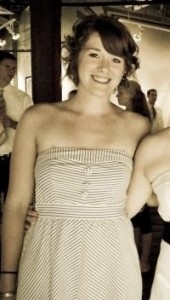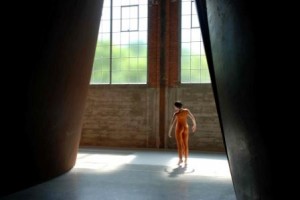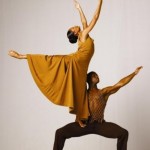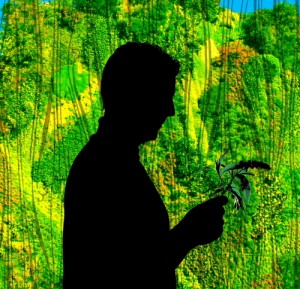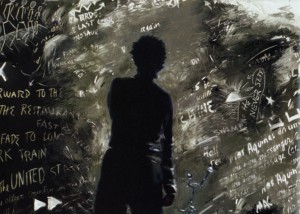Alberto Nacif on Septeto Nacional de Cuba
Of the many great Cuban musicians and orchestras to grace our stages, one that I thought I would never see is coming to Ann Arbor on Thursday, April 7th!
The Septeto Nacional de Cuba, which was founded in 1927 by Ignacio Pineiro (1888–1969), contrabass player, singer, and composer will perform the real Cuban son, the music of the Cuban countryside that took over dance halls and clubs alike in the early 1930s. This music, which is the true progenitor of Salsa and is still popular in both urban and rural settings, originated in Oriente, a province 600 miles from Havana and was a combination of African-derived instruments with Spanish verse forms and stringed instruments. The son has syncopated rhythms and catchy melodies and harmonies which make this a music to sing and dance to.
The music of Pineiro has become a part of the vocabulary of Cuban music, played lovingly by so many of the great musicians, past and present, Cuban and non-Cuban, and still fresh and vital 80 years later. The late 1920s were witness to an explosion of trios, quartets, sextets, and septets from different parts of Cuba each exploring the son, each competing for the pinnacle of expression. Pineiro named his septet “Septeto Nacional” because of the representation of musicians from all over Cuba, and quickly rose to be one of the most successful, thanks again to Pineiro’s compositions and the Septeto’s musicianship. It is no wonder then that so many young musicians are still drawn to this sublime style of music that has maintained its sepia-tone warmth along with Kodacolor excitement.
This concert will be this legendary and much-revered group’s first visit to Ann Arbor, a younger generation of young masters to bring the magic and fire of the Cuban son.
Don’t miss this!!!!
Our Favorite Moments from the Season
It’s hard to believe the first half of the 10/11 season has already come to a close. What an incredible first half it was though for all of us on the UMS Staff! We thought it would be fun to share some of our favorite moments from these past few months, and we invite you to leave a comment sharing your favorite moment too!
“Attending the Mariachi Vargas de Tecalitlán concert solo, I sat next to a wonderful Spanish-speaking grandmother who took me under her wing and translated each and every song: ‘this is a song about love.’ Two songs later: ‘this too, is a song about love.’ I loved the audience for that show as much as I loved the incredible music!” ~Truly Render, Press & Marketing Coordinator
“My husband and I were mesmerized by Robert McDuffie at the Venice Baroque Orchestra performance featuring the “American Four Seasons” work by Philip Glass. The electricity and energy from the stage, as well as the audience, made us feel we had experienced a once in a lifetime event. The icing on the cake was watching Philip Glass walk onto the stage to congratulate Robert McDuffie and join the group for the applause and well-deserved bows.” ~Kathy Brown, Executive Assistant
“Seeing the space at 523 S. Main Street transformed into a club-style performance venue for Stew & The Negro Problem.” ~Mark Jacobson, Programming Manager
“I am a great lover of Mahler’s music, so my favorite moment had to be hearing the Mariinsky Orchestra perform Mahler 5. It was the first time I had heard the piece performed live, and it was an extremely moving experience to say the least! I was so impressed by the musicality of Maestro Gergiev and the emotion he drew out of the Orchestra.” ~Stephanie Normann, Marketing Manager
“That’s a hard call for me. One moment that will not soon be forgotten occurred while I was working the box office at the Once Festival: the line of patrons waiting to purchase tickets intermixed with School of Music students holding mirrors (they were doing a performance art piece). Also, as a patron, I can’t decide between the whole Susurrus experience and that AMAZING kazoo playing by the Carolina Chocolate Drops. “ ~Suzie Davidson, Assistant Ticket Services Manager
“There was this wonderful moment during the Mariachi Vargas de Tecalitlán concert when one of the mariachis handed the microphone to an older man in the front row. The man began singing along into the microphone – he knew ALL of the words and he sounded fantastic! He was doing so well that the mariachis let him sing almost the entire song. It was thrilling to see such an amazing interaction between the artists onstage and an audience member – and to remind us that these musical traditions grow out of us and our everyday lives, and that, as audience members, we are crucial participants in the art we experience. That was such a joyful moment not only for that man, but for all of us gathered in Hill that night.” ~Jim Leija, Manager of New Media & Online Initiatives
“Stew and the Negro Problem at 523 S. Main was a real highlight of the fall for me. It was so exciting to see us enter a new space and transform it into a perfect setting for the concert experience. Those concerts felt so fresh!”
~Liz Stover, Programming Coordinator
“My favorite moments during this season so far were spent on the trails of the Matthaei Botanical Gardens installing the wayfinding signage for Susurrus. I’d never been there before, and it’s really a gorgeous place, especially in the fall. Lots of free oxygen! My most panic-stricken moment (these tend to become fond memories a little later down the line)? Getting Maestro Gergiev back to the airport in time to catch a flight following his appearance with the Mariinsky Orchestra. It was a nail biter!” ~Mary Roeder, Residency Coordinator
“Watching the Venice Baroque musicians serenade our interns backstage during intermission of the concert. They were all so gracious and made our interns experience that evening unique and special.”
~Anne Grove, Artist Services Manager
“The moment I still think about is Susurrus: it was so different from any other sort of theatrical experience I’ve had. I remember the story, but even more, I remember the feeling of the morning as a whole: the beautiful setting, the weather that day, the people who were walking around with me or were just touring the gardens, Dame Janet Baker singing ‘Dido’s Lament’… When I think back on Susurrus, I remember those feelings of calmness and contemplation, and it makes me want to feel that way again.” ~Lisa Murray, Manager of Foundation & Government Grants
Handel’s Messiah: 50 Years of Memories
As the Group Sales Coordinator at UMS, I speak with UMS concertgoers each year in late summer who are looking to book their group reservations as soon as possible. Without fail, several of these calls are for our annual presentation of Handel’s Messiah. As Delores Forsmark and I were speaking about her reservation this year, she shared with me that she and her husband have attended the Messiah performance for more than 50 years. I asked Delores if she would consider sharing some favorite experiences with us, and her husband Bert sent me a wonderful letter explaining how significant this holiday tradition has become for them.
Bert first heard the piece in its entirety after receiving the LP as a Christmas gift from his brother. Delores and Bert began attending the Messiah together in 1958, when Delores was a student at the University of Michigan. He and Delores have made the drive from Flushing, sometimes even in harsh winter snow and ice storms, almost each year since then. Bert writes, “Except for a few times when our kids were small, we have attended performances at Hill Auditorium (or the Michigan Theater, during the renovation) almost without exception, always with guests.”
Ever since that first interaction with the piece, the Forsmarks feel a special connection with the Messiah. Bert told me about how a painting he and Delores purchased, Dali’s Crucifixion, made him remember the lyrics “All we like sheep have gone astray: we have turned every one to his own way…”. Bert recalls, “That was in 1965, and as I sit here typing this, I still weep.”
Bert and Delores’ most memorable Messiah performance was in 1983. Having attended with 42 of their fellow church members and their pastor, Bert recalls how the soprano soloist that year brought a new significance to the performance. He still vividly remembers the passion she brought to the piece: “When she sang ‘Rejoice, rejoice, rejoice greatly’, her face glowed, and the audience rejoiced with her. She easily stole the show, and was the talk of the whole busload.” That soloist was Kathryn Bouleyn, also known as Kathryn Day, who previously performed in the Messiah at UMS in 1976, 1977, and 1978.
At UMS, we know that many of you share the Forsmarks’ appreciation for our annual production of the Messiah. Dr. Andrew Berry has also been attending for more than 50 years – he writes, “This is the beginning of my Christmas season every year. We always have a group, and we carpool to have dinner afterwards.” So what are your favorite memories? What is it about this performance that makes it so special for you? What are you most looking forward to when you walk into Hill Auditorium this year? We hope you’ll share your stories, and we look forward to starting up the holiday season with you this weekend.
It used to be that I found the repeated Amens at the conclusion to be tedious, but now I hear them as joyous Amens rolling through the heavens when the redeemed are gathered as the parts are sung, and at the conclusion sigh and say, ‘Only 364 days until the next one.’ -Bert Forsmark
UMS Staff Picks: The Cripple of Inishmaan selected by Sara Billmann, Director of Marketing & Communications
SN: The multi-award winning Druid and Atlantic Theater co-production of Martin McDonagh’s The Cripple of Inishmaan has been described as “a break-your-heart, cruelly funny evening” – what kind of theatrical journey can audience members expect to experience when they see this production?
SB: I don’t want to spoil the story, but suffice it to say that it will be quite an emotional ride.
I’ve seen two of Martin McDonagh’s plays when they were produced in New York in the mid-late 1990s, and they are simply brilliant pieces, in part because of the way they force you to re-examine your own morals. He sets up these outrageous scenes that are absolutely hilarious, then delivers the knock-out punch that makes you realize you’ve been laughing at something that is, in fact, incredibly tragic. The June issue of <i>Opera News</i> put it perfectly: “As anyone who’s ever sat through a Martin McDonagh play can attest, sometimes the only response we can muster when confronted with the searing emotional or physical pain of others is a laugh.”
I read this play poolside while visiting my in-laws in San Antonio and found myself laughing out loud on any number of occasions. Let’s face it, there are many plays where you chuckle inwardly, but something that produces a spontaneous outburst while reading to yourself is extraordinary in its own sense. And based on every production I’ve seen of McDonagh’s work, the live production will far exceed what’s on the page.
So that we could all familiarize ourselves with the play, about a dozen members of the UMS staff did a “read-through” this summer. I hope that some audience members will be interested in doing the same — we’d be interested in putting together play-reading groups for others and loaning the scripts. It’s a great way to familiarize yourself with the dialects and turns of language that really bring the piece alive. And, of course, a great way to meet new people too.
SN: What are you most looking forward to about this UMS debut performance?
SB: It’s pretty simple, really – I just can’t wait to see what they do with the production to bring it alive. I have friends who saw this production when it was on Broadway a few years ago and raved about it. Having grown up in a small town, I recognize some of the quirky characters and look forward to seeing how they are realized on stage.
SN: What other events are on your “must see” list for the 10/11 season?
SB: Just about everything! As a trained classical musician, I’m particularly interested in the big orchestras and piano recitals. I was turned on to Denis Matsuev about two years ago by someone who had heard his recording in Gramophone magazine. His playing is really quite extraordinary. I also adore Schubert and am looking forward to the three Tákacs concerts, as well as the Scharoun Ensemble performance of the Schubert Octet. I’m also looking forward to Grupo Corpo – what a great company! I could go on and on. The beauty of being the marketing director for UMS is that I start to research all of the artists we’re presenting long before we announce the season, and I always get turned on to things I never would have thought I’d enjoy…which ultimately means that the entire season becomes a “must see” for me.
SN: What do you enjoy doing outside of work?
SB: I have two kids – Elisabeth is 8 and going into 4th grade, and Harry is 6 and going into 1st grade – who keep me plenty busy. I was about to respond that I do laundry outside of work, until I saw the word “enjoy” in the question. Elisabeth loves to play baseball, so I think I’ve spent the better part of July attending her games and taking her to see the Tigers when time permits. I’m also hopelessly addicted to The New Yorker and steal moments here and there to try to stay caught up. Other hobbies include wine tasting and walking the dog – we acquired a boxer/pointer mix from the Humane Society three months ago, and I’ve become the family’s designated dog walker, which fills up a shocking amount of time each day.
SN: What have you been listening to on your iPod?
SB: Ha! The day I get to listen to my iPod will be a great day indeed. Lately my kids have been torturing me, making me listen to “Stayin’ Alive” and 1980s dance tunes (oh, to return to the days when my daughter would watch “The Barber of Seville” by choice…). But when I can wrestle it away from them, I mostly listen to Schubert lieder, Maria Joao Pires performing Schubert and Chopin, Denis Matsuev playing Rachmaninoff, and Mahler, though truth be told, the iPod doesn’t do Mahler justice. Murray Perahia‘s recital in 2000 of the Bach/Busoni Chorale Preludes and the Goldberg Variations will always rank among my top UMS performances, and I often bring back that memory with the recording “Songs Without Words” released around the same time. Angelika Kirchschlager and Fritz Wunderlich are among my favorite singers, though I will confess that I also enjoy Pink Martini in my less serious moments. And I recently loaded on a CD by a wonderful Iranian group called Ghazal.
UMS Staff Picks: Grupo Corpo selected by Rachelle Lesko, Development Administrative Assistant
SN: Grupo Corpo’s work has been described as “searing sensuality elegantly under control” (Le Monde, Paris)—what specific style(s) of dance can audience members expect to see at this performance?
RL: From the numerous video clips I have seen, they are masters of blending many different styles of dance like ballet, modern dance, and Brazilian dance. Each of these dance styles is known for different focal elements such as grace, fluidity, dynamic energy, and sensuality, and the way that Grupo Corpo manages to merge and transition between these different stylistic elements is incredible. The piece Imã, which they are performing in Ann Arbor, showcases a tremendous sense of fluidity and strength between the dancers. Throughout the course of the piece they seamlessly transition from modern dance and Afro-Brazilian visual and musical influences to lyrical ballet and lively, hip-shaking samba moves. I can’t wait to see it in its entirety.
SN: Have you seen a performance by Grupo Corpo before?
RL: I have not seen Grupo Corpo perform in person before, but I have attended many other UMS dance performances. A few that I particularly enjoyed over the years were Rubberbandance Group, Hubbard Street Dance Chicago, and the Trinity Irish Dancers — each of which embodies, in different ways, the energy, athleticism, and passion that can be found in Grupo Corpo. I love attending dance performances because of the sheer emotion and physicality present on the stage in front of you, which I find thrilling. I never get bored! There is always something to capture my attention, whether it’s the amazing technique of an individual or the interactions and broader picture of the group as a whole. I find dance companies that make a point to interweave different dance styles, like Grupo Corpo, especially enjoyable to watch because they throw in a little bit of the familiar for everyone, but then take you by surprise and bring it to a completely new and creative level.
SN: What are you most looking forward to about this performance?
RL: I think I am most looking forward to experiencing the blend of their particular dance styles, especially the incorporation of Brazilian samba and Afro-Brazilian roots. Latin dance (and music) is incredibly dynamic, infectious, and just plain fun! I can’t wait to see how Grupo Corpo brings that flavor to life on the stage AND to the audience.
SN: What other events are on your “must see” list for the 10/11 season?
RL: Wow. That’s a hard question! First of all, I want to say that I’m really excited about this season in general because there are so many artists coming that I personally am not familiar with and/or have never seen perform before, so I’m really looking forward to a year of new experiences. However, I do have a few that are definitely on my radar, like Rosanne Cash, Carolina Chocolate Drops, Rafal Blechacz, Tetzlaff Quartet, Mariachi Vargas de Tecalitlán… I’ll stop there, but I could go on! I think this season’s global focus on the Americas is going to be very exciting and I’m looking forward to attending many of those concerts.
SN: What do you enjoy doing outside of work?
RL: In my free time I enjoy playing the trumpet, both casually and in a local concert band, and spending time with friends and family. I also enjoy running and have recently started to participate in longer distance road races, which I find much more fun and exciting than the training part!
SN: What have you been listening to on your iPod?
RL: Well, a lot of what I’ve been listening to lately has been my running music so it’s a lot of upbeat 80’s rock music: Def Leppard, AC/DC, Journey, R.E.M, Madonna, etc., as well as some Natalie Merchant, Tori Amos, and Norah Jones to relax.
What is the most memorable dance event you’ve ever been to?
UMS 10/11 Season: The Complete List
We realize not everyone wants the multimedia bells n’ whistles when it comes to getting information about the new UMS season. That’s why we’ve created a link (back on www.ums.org) where you can download a simple listing of the entire 10/11 UMS season.
Click here for a complete chronological listing of the 10/11 season. [pdf]
Download or view the 10/11 Season Brochure.
Subscription renewal packets will be mailed to current subscribers in early May. On Monday, May 10, subscription sales will open to the general public. Subscriptions may be purchased using a paper order form or through the UMS website. Subscriber benefits include installment billing, free exchanges, free parking to subscribers of at least eight events, priority access to special non-series concerts, and the opportunity to discuss programming in depth with members of the UMS Programming Committee to facilitate decision-making.
Tickets to individual events will go on sale to the general public on Monday, August 23 (via www.ums.org) and Wednesday, August 25 (in person and by phone).
To be added to the mailing list, please contact the UMS Ticket Office at 734-764-2538 or visit www.ums.org. UMS also has an e-mail list that provides up-to-date information about all UMS events; sign-up information is available on the website.
For series information with multimedia links and in-depth information:
Additional UMS 10/11 Events
UMS is pleased to announce additional concerts in the 10/11 season that are not part of our genre-specific packages. These events are all part of UMS’s popular Monogram Series, which allows audience members to select at least five events and receive a 10% discount.
Rosanne Cash: The List
Saturday, September 25 | 8 pm
Hill Auditorium
When Roseanne Cash was 18 and on the road with her father, the incomparable country music superstar Johnny Cash, he became alarmed at the number of songs that she didn’t know. As the tour progressed, he developed a list on a legal pad — “100 Essential Country Songs” — and gave it to her with a thinly veiled admonishment that she needed to do her homework. Now, more than 30 years later, Cash has selected a dozen songs from the syllabus presented to her by her father and has recorded her first album of covers, filtered through her own unique, sophisticated perspective. The List presents Roseanne Cash like you’ve never heard her before, as she embraces her heritage and sings for the pure love of these songs that have shaped who she is as an artist.
Mariachi Vargas de Tecalitlán
Saturday, November 6 | 8 pm
Hill Auditorium
With a history that dates back to the late 1890s, the Mariachi Vargas de Tecalitlán was founded in a small city near Jalisco by Don Gaspar Vargas. This band basically invented the modern mariachi, and five generations later, are still playing today. The group spent its formative years defining their sound and experimenting with different instrumental lineups. Today the group is comprised of two harps, one vihuela, one guitar, one guitarron, two trumpets, and six violins. The songs they sing cross over from one generation to the next, making their performances appealing to both young and mature audiences. Recognized as “el major mariachi del mundo” (the greatest mariachi in the world), Mariachi Vargas are the masters at melding the old world style of mariachi music with new innovative pieces.
Stew and The Negro Problem
with Heidi Rodewald
Thursday, November 18 | 8 pm
Friday, November 19 | 8 pm
Saturday, November 20 | 7:30 pm & 10:30 pm
Location TBA
“Stew’s endlessly inventive music draws on rock, gospel, soul, and blues…A winning tribute to the diversity of the black musical experience.” (Hollywood Reporter) Songwriter Stew’s career took an unexpected turn in 2006. After a successful career fronting his critically acclaimed bands, Stew and The Negro Problem, he transformed his life story into the rock musical Passing Strange. The show, co-composed with Heidi Rodewald, earned him the 2008 Tony Award for “Best Book of a Musical” and attracted the attention of Spike Lee, who produced the film, which premiered at the 2009 Sundance Film Festival and airs on PBS’s “Great Performances.” Compared in the same breath with Kurt Weill, Burt Bacharach, and Jackie Gleason, Stew’s concert performances are coveted for their literate precision, sly humor, and deep emotional resonance, hovering between the divergent worlds of rock and theater. “Something hipper for the hipper…Stew is a very genial and lovable guide through the common travails of life. Like a lot of fine writers and musicians, he has the ability to layer reflexive self-doubt into his music and lyrics…very witty, very smart.” (Chicago Tribune)
Carolina Chocolate Drops
Friday, December 3 | 8 pm
Michigan Theater
“Tradition is a guide, not a jailer. We play in an older tradition but we are modern musicians,” says Justin Robinson, a member of the popular bluegrass band, the Carolina Chocolate Drops. The group’s name is a tip of the hat to the Tennessee Chocolate Drops, who lit up the music scene in the 1930s. Inspired by old-time fiddler Joe Thompson, at whose home they jammed every Thursday night during the summer and fall of 2005, the CCD starting playing anywhere people would listen — town squares, farmers’ markets, and ultimately festivals and concert halls, where their foot-tapping music linked the deep tradition of the past with “dirt-floor-dance electricity.” (Rolling Stone) Their sellout shows at the Ark last year reinforced how far they’ve come in a very short time. “This striking North Carolina trio brings a modern sizzle to the legacy of classic African American stringbands…sparking an electrifying ruckus.” (Spin)
Handel’s Messiah
Ann Arbor Symphony Orchestra and UMS Choral Union
Jerry Blackstone conductor
Saturday, December 4 | 8 pm
Sunday, December 5 | 2 pm
Hill Auditorium
The Grammy Award-winning UMS Choral Union (2006 Best Choral Performance for William Bolcom’s Songs of Innocence and of Experience) launches the holiday season with its signature work, Handel’s glorious oratorio Messiah. An Ann Arbor tradition in the beautiful surroundings of Hill Auditorium, these performances are ultimately the heart and soul of UMS, connecting audiences with the talented people on stage, but also with the friends and family who attend each year. Those who have been coming for decades say that the chorus has never sounded better.
Joanne Shenandoah
Sunday, January 23 | 4 pm
Rackham Auditorium
One of today’s most revered Native American singers and songwriters, Joanne Shenandoah is a Wolf Clan member of the Iroqois Confederacy, Oneida Nation whose Native name, Deguiya whah-wa, means “she sings.” The singer/songwriter has performed with such legendary entertainers as Kris Kristofferson and Willie Nelson and has won more Native American Music Awards (Nammies) than any other artist. The daughter of two talented musicians (her father, a jazz guitarist, played with Duke Ellington), Shenandoah was an architectural systems engineer before forging her successful career as a musician. “From my office window I saw a tree being cut down and knew that I, too, had been uprooted and needed to follow my natural gift,” she says. Shenandoah’s original compositions, combined with a striking voice, enable her to embellish the ancient songs of the Iroquois using a blend of traditional and contemporary instrumentation.
Blues at the Crossroads: The Robert Johnson Centennial Concert
featuring Big Head Todd & The Monsters
David “Honeyboy” Edwards
Hubert Sumlin
Cedric Burnside
and Lightnin’ Malcolm
Thursday, February 10 | 8 pm
Hill Auditorium
Straight from the heart of the back country, Blues at the Crossroads has a direct connection back to Robert Johnson (1911-1938), among the most famous of Delta blues musicians. Johnson’s landmark recordings in the 1930s displayed a remarkable combination of singing, miraculous guitar skills, and songwriting talent that have influenced generations of musicians, including Eric Clapton, who called him “the most important blues singer that ever lived.” This concert picks up the thread of Johnson’s legacy in Mississippi at the junction of US Highways 61 and 49, the very crossroads where, as legend has it, Robert Johnson made a deal with the devil, giving up his soul to write the most incredible blues the world had ever heard. The concert features Big Head Todd & The Monsters, as well as David “Honeyboy” Edwards, who at 94 is the only living person to have played with Robert Johnson before his untimely death at age 27 — believed to have been caused by poisoning from a bottle of whiskey that was laced with strychnine.
Kodo Drummers
Wednesday, February 23 | 8 pm
Hill Auditorium
In ancient Japan, the taiko drum was a symbol of the rural community, and it is said that the limits of the village were defined not by geography, but by the furthest distance from which the taiko could be heard. With its “One Earth” tour, Kodo brings the sound of the taiko to people around the globe, transcending barriers of language and custom and reminding all of our membership in that much larger community, the world. “In this age of exploding populations and lightning-fast communication, it is more important than ever that these diverse cultures learn to recognize and accept each other so that all may share our increasingly shrinking planet in harmony,” according to Kodo’s primary philosophy. The Japanese characters of the company’s name convey two meanings: “heartbeat,” the primal source of all rhythm, and “children of the drum,” a reflection of Kodo’s desire to play their drums simply, with the heart of a child.
Tony Allen’s Secret Agent
Saturday, April 16 | 8 pm
Hill Auditorium
The drummer behind the late Nigerian bandleader Fela Anikulapo Kuti, Tony Allen is probably the most highly-regarded African drum set player to emerge since World War II, with drummers and other musicians of all backgrounds marveling at his polyrhythmic style. Kuti is largely considered the most influential African popular musician of the post-colonial era, and Tony Allen was his crucial collaborator in the synthesis of jazz, funk, and highlife that resulted in the style known as Afrobeat.Born in Nigeria in 1940 of mixed Nigerian and Ghanaian parentage, Allen is influenced by everything from European ballroom dance music to big-band jazz drumming, indigenous percussion traditions, and the tradition of modern jazz drumming typified by such musicians as Art Blakey, Elvin Jones, and Max Roach. After playing for years in the shadows of better-known musicians, Tony Allen is now starting to receive the worldwide credit he deserves as one of the most dynamic players of the drum set. “Without Tony, there’d be no Afrobeat.” (Fela Anikulapo Kuti)
Other events on the Monogram Series:
Paul Taylor Dance Company
Sankai Juku: Hibiki
Grupo Corpo
Merce Cunningham Dance Company
The Hot Club of San Francisco and the Hot Club of Detroit/Django Reinhardt 100th Birthday Celebration
Wynton Marsalis and Jazz at Lincoln Center Orchestra
Vijay Iyer Trio and Rudresh Mahanthappa’s Apex
Septeto Nacional Ignacio Piñeiro de Cuba
Susurrus
Laurie Anderson’s Delusion
Druid Theater Company: Martin McDonagh’s The Cripple of Inishmaan
Propeller Theater Company: Shakespeare’s Richard III and The Comedy of Errors
Divine Voices (St. Francis of Assisi Catholic Church)
Jordi Savall and La Capella Reial de Catalunya with Hesperion XXI and Temembe Ensamble
The Tallis Scholars
Sequentia
Jerusalem String Quartet
Nadja Salerno-Sonnenberg and New Century Chamber Orchestra
Concertante and Rafał Blechacz, piano
Takács Quartet: Schubert Concert 2
Takács Quartet: Schubert Concert 3
Tetzlaff Quartet
Venice Baroque Orchestra
The Cleveland Orchestra
Rafał Blechacz, piano
Detroit Symphony Orchestra/Mahler’s Symphony No. 8
Bach Collegium Japan/Bach’s Mass in b minor
Liebeslieder Waltzes
******************************************
GLOBAL FOCUS ON THE AMERICAS
******************************************
This season’s global series explores The Americas — North, South, and Latin — with 19 different events representing something uniquely different about this part of the world. The events featured on The Americas series are:
Roseanne Cash (Sat Sep 25)
Tembembe Ensamble Continuo/The Route of the New World: From Spain to Mexico (Thu Sep 30)
Paul Taylor Dance Company (Thu-Sat Oct 7-9)
Venice Baroque Orchestra/Philip Glass’s “American Four Seasons” (Wed Oct 27)
ONCE.MORE Festival: The Historic Concert (Tue Nov 2)
Mariachi Vargas de Tecalitlán (Sat Nov 6)
Stew and The Negro Problem with Heidi Rodewald (Thu-Sat Nov 18-20)
Carolina Chocolate Drops (Fri Dec 3)
Laurie Anderson’s Delusion (Fri-Sat Jan 14-15)
Renée Fleming soprano (Sun Jan 16)
Grupo Corpo (Fri-Sat Jan 21-22)
Joanne Shenandoah (Sun Jan 23)
Baby Loves Salsa (family performances) (Sun Jan 30)
The Cleveland Orchestra (Tue Feb 1)
Wynton Marsalis and Jazz at Lincoln Center Orchestra (Wed Feb 2)
New Century Chamber Orchestra/Astor Piazzolla’s “Four Seasons of Buenos Aires” (Fri Feb 4)
Blues at the Crossroads: The Robert Johnson Centennial (Thu Feb 10)
Vijay Iyer Trio and Rudresh Mahanthappa’s Apex (Sat Feb 12)
Merce Cunningham Dance Company: The Legacy Project (Fri-Sat Feb 18-19)
Detroit Symphony Orchestra (Sat Mar 19)
Septeto Nacional Ignacio Piñeiro de Cuba (Thu Apr 7)
Tickets to individual events on the series go on sale on Monday, August 23 (via www.ums.org) and Wednesday, August 25 (in person and by phone).
Which events in the season are you most anticipating? Tell us what your monogram series is likely to include!
UMS Announces 10/11 Family Series
UMS announces its 10/11 Family Series, featuring two one-hour performances especially for families. In addition, families may purchase advanced tickets to a special daytime performance by Kodo, scheduled during the Ann Arbor Public Schools winter break. Complete details below!
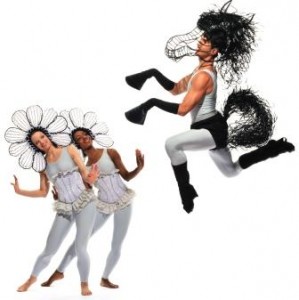 Paul Taylor Dance Company
Paul Taylor Dance Company
Saturday, October 9 | 1 pm
Power Center
Quite simply, Paul Taylor makes dances that people love. He has made some of the most astonishingly athletic and downright funniest dances ever put on a stage. This performance features his new work, Also Playing, a Vaudeville revue with acts ranging from an Apache dance to a tap-dancing horse and a toreador whose sissy bulls are frightened of her. The afternoon will also include a “chance to dance,” where children learn some of the company’s dance moves in a pre-concert hands-on — or shall we say feet-on? — workshop.
Baby Loves Salsa
Sunday, January 30 | 1 pm & 4 pm
Lydia Mendelssohn Theatre
Baby Loves Salsa features some of the biggest and brightest stars in contemporary salsa music, including band leader and singer José Conde, who regularly appears with his New York-bsaed band Ola Fresca. Just as Dan Zanes has revolutionized kids’ music, José Conde takes the Afro-Cuban form of salsa and turns it into something that kids and parents both love. Don’t be misled by the band’s name — kids who have outgrown their diapers are sure to enjoy this band’s dizzying range of Afro-Latin styles.
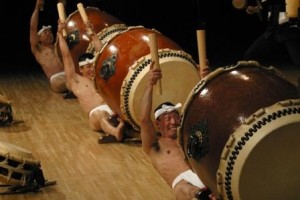 Kodo Drummers of Japan
Kodo Drummers of Japan
Wednesday, February 23 | 11 am
Hill Auditorium
This exuberant, yet highly disciplined, group lives on an island in Japan, where they submit to a rigorous training program along with an aggressive touring schedule. Their performances feature amazing rhythmic synchronicity, with the 1,000-pound o-daiko drum — carved from the trunk of a single tree — taking center stage for an amazing powerhouse of sound. This special performance has been scheduled during the Ann Arbor Public Schools’ Winter Break, providing a mid-week outlet to release some pent-up energy. An unforgettable experience!
Tickets for the Family Series are $30 for adults and $15 for children (includes Paul Taylor Dance Company and Baby Loves Salsa). Kodo tickets may be purchased for $16 adults and $8 children. Subscription renewal packets and brochures will be mailed in early May.
Tickets to individual events on the series go on sale on Monday, August 23 (via www.ums.org) and Wednesday, August 25 (in person and by phone).
Tell us what you like about UMS’s Family Programming — and what you wish we would do differently. How old are the children you bring to UMS Family Performances?
20th Annual Dance Series Announced
The University Musical Society is pleased to announce its 20th Annual Dance Series, with five companies performing in the Power Center and the Detroit Opera House. The series includes:
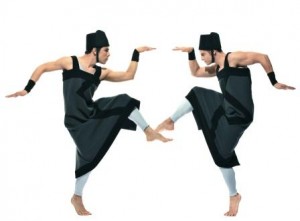 Paul Taylor Dance Company
Paul Taylor Dance Company
Paul Taylor, artistic director
Thursday, October 7 | 8 pm
Friday, October 8 | 8 pm
Saturday, October 9 | 8 pm
Power Center
More than a half-century ago, after performing in the companies of Merce Cunningham, Martha Graham, and George Balanchine, Paul Taylor became the youngest member of the pantheon that created American modern dance. Now approaching 80 — an age when most artists’ best work is behind them — Taylor is acclaimed for the vibrancy, relevance, and power of his dances. As prolific as ever, he continues to offer cogent observations on life’s complexities while tackling some of society’s thorniest issues. While his work has largely been iconoclastic, since the very start of his career Taylor has also made some of the most purely romantic, most astonishingly athletic, and downright funniest dances ever put on a stage. UMS, in collaboration with the U-M Department of Dance, shines a light on Paul Taylor, with a day-long residency and three performances highlighting just a fraction of the more than 130 dances he has created. “What other artist today makes poetic drama of such variety and eloquence? A Taylor season is a journey through one of the most singular and searching imaginations of our time.” (The New York Times, 2/17/10)
Program (Thurs 10/7)
Speaking in Tongues (Music by Matthew Patton) (1988)
Esplanade (J.S. Bach) (1975)
Program (Fri 10/8)
Orbs (Ludwig van Beethoven) (1966)
Also Playing (Gaetano Donizetti) (2009)
Program (Sat 10/9)
Black Tuesday (Songs of the Great Depression) (2001)
The Word (David Israel) (1998)
Piazzolla Caldera (Astor Piazzolla and Jerzy Peterburshsky) (1997)
Sankai Juku: Hibiki
Ushio Amagatsu, director, choreographer, and designer
Saturday, October 23 | 8 pm
Sunday, October 24 | 2 pm
Power Center
Ushio Amagatsu, the founder and artistic director of Sankai Juku, trained in classical as well as modern dance before he devoted his life to butoh. Butoh first appeared in Japan after World War II and is often defined by its playful and grotesque imagery, taboo topics, and absurd environments. Traditionally performed in white body makeup with slow, hyper-controlled, mesmerizing motion, butoh represents to Amagatsu a “dialogue with gravity,” whereas most dance forms revel in the escape from gravity. It plays with the perception of time and space through slowing down the experience — the dance equivalent of haiku, only much longer. The company last appeared in Ann Arbor in 1999. In 2002, the work that they will perform, Hibiki – Resonance From Far Away, received an Olivier Award for “Best New Dance Production.” “[Ushio Amagatsu] conveys the infinitely minute yet spellbinding transformations of a world in constant metamorphosis.” (Dance Magazine)
Grupo Corpo
Rodrigo and Paulo Pederneiras, artistic director and choreographer
Friday, January 21 | 8 pm
Saturday, January 22 | 8 pm
Power Center
This electrifying Brazilian dance company captivates with stunning, sexy physicality, dynamic ability, and rich visual flair. Grupo Corpo (literally “Body Group”) creates a vibrant and seamless blend of ballet’s grace, modern dance’s verve, and the hip-swiveling exuberance of Carnival sambas and their Afro-Brazilian roots. Founded in 1975, Grupo Corpo returns to Ann Arbor — the company appeared in 2002 as part of UMS’s focus on Brazilian artists — with two performances featuring Ímã (2009) and another work to be announced. Don’t miss this chance to experience Grupo Corpo’s “searing sensuality elegantly under control.” (Le Monde, Paris)
Merce Cunningham Dance Company
Friday, February 18 | 8 pm
Saturday, February 19 | 8 pm
Power Center
When the always forward-thinking Merce Cunningham passed away in July 2009 at the age of 90, he left behind a plan for the dissolution of his dance company and the preservation of his works: a two-year legacy tour that would end on December 31, 2011 with a performance in New York City. Cunningham was undeniably a leader of the American avant-garde throughout his 70-year career and is considered one of the most important choreographers of our time. Through much of his life, he was also one of the greatest American dancers, performing with the Martha Dance Company for six years. With an artistic career distinguished by constant innovation, Cunningham expanded the frontiers of dance, but also of contemporary visual and performing arts. His collaborations with artistic innovators from every creative discipline have yielded an unparalleled body of American dance, music, and visual art. These two different programs will be drawn from the more than 150 dances that Cunningham created over more than six decades of choreographic innovation. In Merce’s own words: “You have to love dancing to stick to it. It gives you nothing back, no manuscripts to store away, no paintings to show on walls and maybe hang in museums, no poems to be printed and sold, nothing but that single fleeting moment when you feel alive.” Fleeting for the dancer, perhaps, but creating lasting impressions for the audiences that experience it.
Alvin Ailey American Dance Theater
Judith Jamison, artistic director
Thursday, March 3 | 7:30 pm [note start time!]
Detroit Opera House
UMS is partnering with the Detroit Opera House so that UMS dance subscribers can experience this quintessentially American dance company. The Alvin Ailey American Dance Theater grew from the now-fabled performance in March 1958 at the 92nd Street Young Men’s Hebrew Association in New York. Led by Alvin Ailey and group of young African-American modern dancers, that performance forever changed the perception of American dance. Now, some 52 years later, the company has performed for an estimated 23 million people in 48 states and 71 countries on six continents. The company has earned a reputation as one of the most acclaimed international ambassadors of American culture, promoting the uniqueness of the African-American cultural experience and the preservation and enrichment of the American modern dance heritage. When Alvin Ailey began creating dance, he drew upon his “blood memories” of Texas, the blues, spirituals, and gospel as inspiration, which resulted in the creation of his most popular and critically-acclaimed work, Revelations.
This performance is only available to dance subscribers; all other tickets will be sold through the Detroit Opera House. UMS will offer round-trip luxury coach service to Detroit for this performance for those who prefer not to drive (details to be announced).
Tickets for the five-performance series range from $133-$206. Subscription renewal packets and brochures will be mailed in early May.
Tickets to individual events on the series go on sale on Monday, August 23 (via www.ums.org) and Wednesday, August 25 (in person and by phone).
Which events in the season are you most anticipating? What are memorable dance performances of years past? Let us know in the comments area.
UMS Announces 10/11 Choral Union Series & Piano Series
The University Musical Society is pleased to announce its 132nd Annual Choral Union Series, with 10 concerts in Hill Auditorium. The series includes:
Mariinsky Orchestra
Valery Gergiev, conductor
Denis Matsuev, piano
Sunday, October 10 | 4 pm
Hill Auditorium
Gergiev’s long association with the Mariinsky Theatre — including 10 UMS appearances, most recently the five-concert cycle of Shostakovich symphonies —has raised the ensemble’s profile to the point where it is now widely regarded one of the most dynamic and exciting ensembles on the world stage today. The fiery Russian pianist Denis Matsuev has received worldwide acclaim for his rare combination of technical virtuosity and deep musicality since his stunning victory at the 11th International Tchaikovsky Competition in Moscow in 1998. “His technique is phenomenal: blistering passagework, steely chords. Perhaps he is the new Horowitz.” (London Times)
Program
Rachmaninoff Piano Concerto No. 3 in d minor, Op. 30
Mahler Symphony No. 5
Venice Baroque Orchestra
Robert McDuffie, violin
Wednesday, October 27 | 8 pm
Hill Auditorium
The Venice Baroque Orchestra was founded in 1997 by harpsichordist Andrea Marcon and is recognized as one of Europe’s premier ensembles devoted to period instrument performance. For this UMS debut, they perform music of their home city — Venetian composer Antonio Vivaldi’s The Four Seasons — paired with an “American Four Seasons” by Philip Glass featuring violinist Robert McDuffie, who has worked closely with Glass over the years and who made his UMS debut with the Jerusalem Symphony in 2008.
Program
Vivaldi The Four Seasons, Op. 8 (1723)
Glass Violin Concerto No. 2: “The American Four Seasons”
Murray Perahia, piano
Wednesday, November 10 | 8 pm
Hill Auditorium
Anyone who has heard one of Murray’s Perahia’s previous 11 UMS appearances would have to agree with the assessment of The Los Angeles Times: “Perahia is a marvel.” In the more than 35 years he has been performing on the concert stage, he has become one of the most cherished pianists of our time. “Perahia may be the closest thing to a pure conduit of music — one in which the imagination and skill of the player are entirely at the service of the composer, not the player’s ego…The soul of a poet, the mind of a thinker, the hands of a virtuoso: No wonder audiences love this guy.” (The Seattle Times)
Program to be announced.
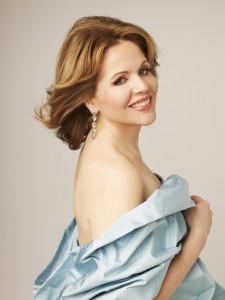 Renée Fleming, soprano
Renée Fleming, soprano
Sunday, January 16 | 4 pm
Hill Auditorium
One of the most beloved and celebrated musical ambassadors of our time, soprano Renée Fleming captivates audiences with her sumptuous voice, consummate artistry, and compelling stage presence. In addition to commanding the stages of the great opera houses of the world, she hosts the Metropolitan Opera’s Live in HD Series for movie theaters and television with behind-the-scenes interviews. Her fame is such that perfumes, desserts, and flowers have all been named after her, but those superficial accolades pale in comparison to her devoted following of opera lovers around the world. This great American soprano returns to UMS after her 1997 recital and her 2005 appearance in a concert version of Richard Strauss’s Daphne.
The Cleveland Orchestra
Franz Welser-Möst, conductor
Pierre-Laurent Aimard, piano
Tuesday, February 1 | 8 pm
Hill Auditorium
Founded shortly after the end of World War I, the Cleveland Orchestra has been guided by seven music directors, each of whom has left his mark on the widely admired “Cleveland” sound: Nikolai Sokoloff, Artur Rodzinski, Erich Leinsdorf, George Szell, Lorin Maazel, Christoph von Dohnányi, and Franz Welser-Möst, who leads the ensemble and the French pianist Pierre-Laurent Aimard in this performance.
Program
Bartók Music for Strings, Percussion, and Celeste, Sz. 106, BB 114
Schumann Piano Concerto in a minor, Op. 54
Wagner Overture to Tannhäuser
Rafał Blechacz, piano
Friday, February 11 | 8 pm
Hill Auditorium
In October 2005, the 20-year-old Rafał Blechacz, an unassuming young man from a small town in northern Poland, arrived in Warsaw for the 15th International Chopin Competition. His sensational performance won not only the competition, but also all four special prizes for the polonaise, mazurka, sonata, and concerto performance — in fact, one of the judges remarked that he “so outclassed the remaining finalists that no second prize could actually be awarded.” Blechacz was the first Pole to win the prize since Krystian Zimerman 30 years earlier. Notwithstanding his young age, his playing offers poetry, maturity, poise and concentration, as well as a phenomenal and luminous technique. “How reassuring it is to see one so young putting poetry first…we were all on another planet.” (Financial Times)
Program to be announced.
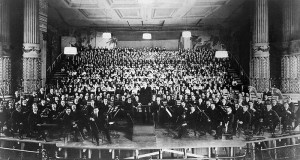 Mahler’s Symphony No. 8
Mahler’s Symphony No. 8
Detroit Symphony Orchestra
UMS Choral Union
U-M Chamber Choir
U-M University Choir
U-M Orpheus Singers
MSU Children’s Choir
Leonard Slatkin, conductor
Saturday, March 19 | 8 pm
Hill Auditorium
In commemoration of the 150th anniversary of Gustav Mahler’s birth and the 100th anniversary of his death, UMS is collaborating with the DSO and Michigan Opera Theatre to present a spectacular, not-to-be-missed performance of Mahler’s monumental Symphony No. 8, also known as “Symphony of a Thousand.” The first performance of this “choral symphony” featured a chorus of about 850, with an orchestra of 171, leading Mahler’s agent to dub to the work “Symphony of a Thousand.” While Mahler himself did not approve of the title, it nevertheless remains associated with this work, which is rarely preformed due to the massive forces required to do it justice.
Bach’s Mass in b minor
Bach Collegium Japan
Masaaki Suzuki, conductor
Thursday, March 24 | 8 pm
Hill Auditorium
Founded in 1990 by Masaaki Suzuki with the aim of introducing Japanese audiences to period instrument performance of great works of the Baroque period, the Bach Collegium Japan comprises both orchestra and chorus. The group has developed a formidable reputation through its recordings of J.S. Bach’s church cantatas, and returns to Ann Arbor after its 2003 St. Matthew Passion in St. Francis of Assisi Catholic Church. Widely regarded as one of the supreme achievements in classical music, the Mass in b minor was composed over a period of 25 years and assembled in its present form in 1749, the year before Bach died. “I have never heard period instruments played with such purity of tone, so reliably in tune. The small, precise, dramatically alert chorus breathed fire but also revealed a heartbreaking tenderness.” (The Los Angeles Times)
St. Petersburg Philharmonic
Yuri Temirkanov, conductor
Nikolai Lugansky, piano
Saturday, April 2 | 8 pm
Hill Auditorium
The Russian city of St. Petersburg boasts two world-class orchestras, and UMS has enjoyed a long relationship with each. The St. Petersburg Philharmonic has appeared in Ann Arbor five times under Yuri Temirkanov’s leadership. With a history dating back more than 200 years, the St. Petersburg Philharmonic is embedded with musical history, performing the world premiere of Beethoven’s Missa Solemnis in 1824, as well as Tchaikovsky’s Symphony No. 6, Prokofiev’s Symphony No. 1, and many works by Shostakovich. Pianist Nikolai Lugansky, who won the 1994 Tchaikovsky Piano Competition, makes his UMS debut. A Russian newspaper said of his performance in the final round of competition: “It was like getting sunstroke, a musical shock. Nobody could imagine that the soul of this unpretentious, modest young man, with his ascetic, but also poetic appearance, held such a volcano inside with inspired and resolute control.”
Program
Rimsky-Korsakov Scheherazade, Op. 35
Rachmaninoff Piano Concerto No. 2 in c minor, Op. 18
Liebeslieder Waltzes
Genia Kühmeier, soprano
Bernarda Fink, mezzo-soprano
Michael Schade, tenor
Thomas Quasthoff, bass-baritone
Malcolm Martineau, piano
Justus Zeyen, piano
Saturday, April 23 | 8 pm
Hill Auditorium
After nearly a decade in which he composed no vocal music at all, Schumann made a striking return to the genre with the Spanisches Liebeslieder song collection, which combines songs for solo voice with duets and quartets. A generation later, Brahms took the same instrumentation — vocal quartet plus four-hand piano —and composed the Liebeslieder and Neue Liebeslieder Waltzes. These three works serve the centerpiece of a program that also includes Brahms’ composition for vocal quartet and piano, performed by a brilliant quartet of musicians, including bass-baritone Thomas Quasthoff, who last appeared at UMS in a Lydia Mendessohn Theatre recital in 2000.
Program
Schumann Spanische Liebeslieder, Op. 138
Brahms Liebeslieder Waltzes, Op. 52
Brahms Four Songs from Quartets for Four Voices and Pianos, Ops. 64 & 92
Brahms Neue Liebeslieder Waltzes, Op. 65
Tickets for the 10-concert series range from $100-$650. Subscription renewal packets and brochures will be mailed in early May.
In addition to the 10-concert Choral Union Series, five events listed above will be packaged as a Piano Series (Kirov Orchestra with Denis Matsuev, Murray Perahia, Cleveland Orchestra with Pierre-Laurent Aimard, Rafał Blechacz, and St. Petersburg Philharmonic with Nikolai Lugansky). Prices for the five-concert Piano Series range from $50-$310.
Tickets to individual events on the series go on sale on Monday, August 23 (via www.ums.org) and Wednesday, August 25 (in person and by phone).
Which events in the season are you most anticipating? Let us know in the comments area below.
UMS Announces 10/11 International Theater Series
In conjunction with the Maly Drama Theater of St. Petersburg’s production of Uncle Vanya and World Theater Day on Saturday, March 27, UMS announces its 10/11 International Theater Series. The series will include five productions:
Susurrus
Written, directed,
and conceived by David Leddy
September 9 – October 3
Matthaei Botanical Gardens
Susurrus is a play without actors, without a stage, and with only one person in the audience — YOU. It is part radio play, part avant-garde sonic art, part lesson in bird dissection, and part stroll through nature. Audiences follow a map around the Matthaei Botanical Gardens as they listen to a recording on an iPod and headphones. The listener hears snippets about opera, memorial benches, and botany, which fit together into a mournful and poignant story of love and loss that is loosely inspired by Benjamin Britten and W.H. Auden’s collaboration on Britten’s opera, A Midsummer Night’s Dream. Susurrus was first presented to great acclaim and sellout audiences at Glasgow’s Botanic Gardens in 2006 and later mentioned by both The Guardian and The Scotsman as one of the top arts events of the year. It was one of the hits of last year’s Edinburgh Fringe Festival. Times will vary, with groups of four admitted every 15 minutes.
Laurie Anderson’s Delusion
Friday, January 14 | 8 pm
Saturday, January 15 | 8 pm
Power Center
Laurie Anderson is one of America’s most renowned — and daring — creative pioneers. Recognized worldwide as a leader in the use of technology in the arts, Anderson is known widely for her multimedia presentations, casting herself in roles as varied as visual artist, composer, poet, photographer, filmmaker, electronics whiz, vocalist, and instrumentalist. At the heart of this new multimedia work, which was presented for the first time at the Vancouver 2010 Cultural Olympiad, is the pleasure of language and a fear that the world is made entirely of words. Conceived as a series of short mystery plays, Delusion jump-cuts between the everyday and the mythic, evoking a world filled with nuns, elves, rotting forests, ghost ships, archaeologists, dead relatives, and unmanned tankers. Employing a series of altered voices and imaginary guests, Anderson combines her signature violin pieces, electronic puppetry, music, and visuals, with the poetic language that has become her trademark to tell a complex story about longing, memory, and identity.
Martin McDonagh’s The Cripple of Inishmaan
Druid Theater Company
Garry Hynes, director
Thursday, March 10 | 8 pm
Friday, March 11 | 8 pm
Saturday, March 12 | 8 pm
Sunday, March 13 | 2 pm
Power Center
It’s 1934, and news is thin on the island of Inishmaan. Then word arrives that a Hollywood filmmaker is coming to a neighboring island to shoot a movie, and excitement ripples through the sleepy community. For Billy Claven, a crippled orphan, the film provides an opportunity to get away from his bleak existence. He auditions for a part in the film and, to everyone’s surprise, gets his chance. The Cripple of Inishmaan is “a break-your-heart, cruelly funny evening directed with an exhilarating ruthlessness and acted with a bracing lack of sentimentality.” (The Guardian) The second play in Martin McDonagh’s Aran Islands trilogy, it is infused with his trademark humor, rich with macabre cruelty, and teeming with eccentric island characters, from Billy’s “Aunt Kate,” who talks to stones, to gossip monger “JohnnyPateenMike,” who attempts to get his elderly mother to drink herself to death. Ireland’s acclaimed Druid Theater Company makes its UMS debut with this tour of its critically acclaimed 2008 production.
Shakespeare’s Richard III and
The Comedy of Errors
Propeller
Edward Hall director Power Center
The Comedy of Errors
Thursday, March 31 | 7:30 pm
Saturday, April 2 | 7:30 pm
Sunday, April 3 | 2 pm
Richard III
Wednesday, March 30 | 7:30 pm
Friday, April 1 | 7:30 pm
Saturday, April 2 | 2 pm
Sunday, April 3 | 7:30 pm
Propeller’s production of The Taming of the Shrew, 2008
Edward Hall — son of the English theater director Sir Peter Hall —brings his theater company Propeller to Ann Arbor for the first time with four performances each of two Shakespeare plays: Richard III and The Comedy of Errors. Propeller evolved out of Hall’s first Shakespeare play for the Watermill Theater in the mid-1990s. His all-male company mimics the theater Shakespeare’s of time, and the company mixes a rigorous approach to the text with a modern physical aesthetic. Hall says, “I want to rediscover Shakespeare simply by doing plays as I believe they should be done: with great clarity, speed, and full of as much imagination in the staging as possible. I don’t want to make the plays ‘accessible,’ as this implies that they need ‘dumbing down’ in order to be understood, which they don’t.” The two plays will be presented in repertory, with the same cast members performing both plays.
Subscription information and brochures will be mailed in early May. The remainder of the UMS 10/11 season will be announced on Wednesday, April 7.
We’d love to hear from you! What theater productions of the past have been the most memorable? What are you most looking forward to in the 10/11 season — or beyond?


